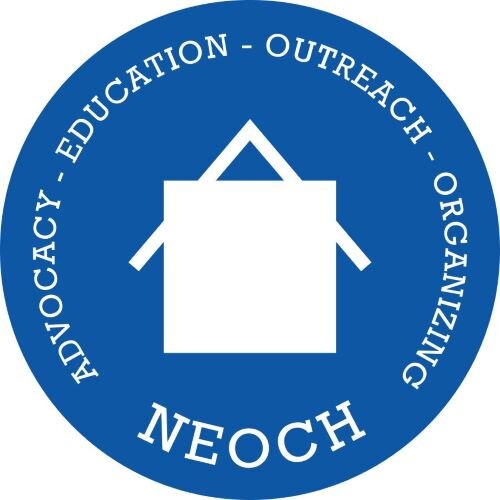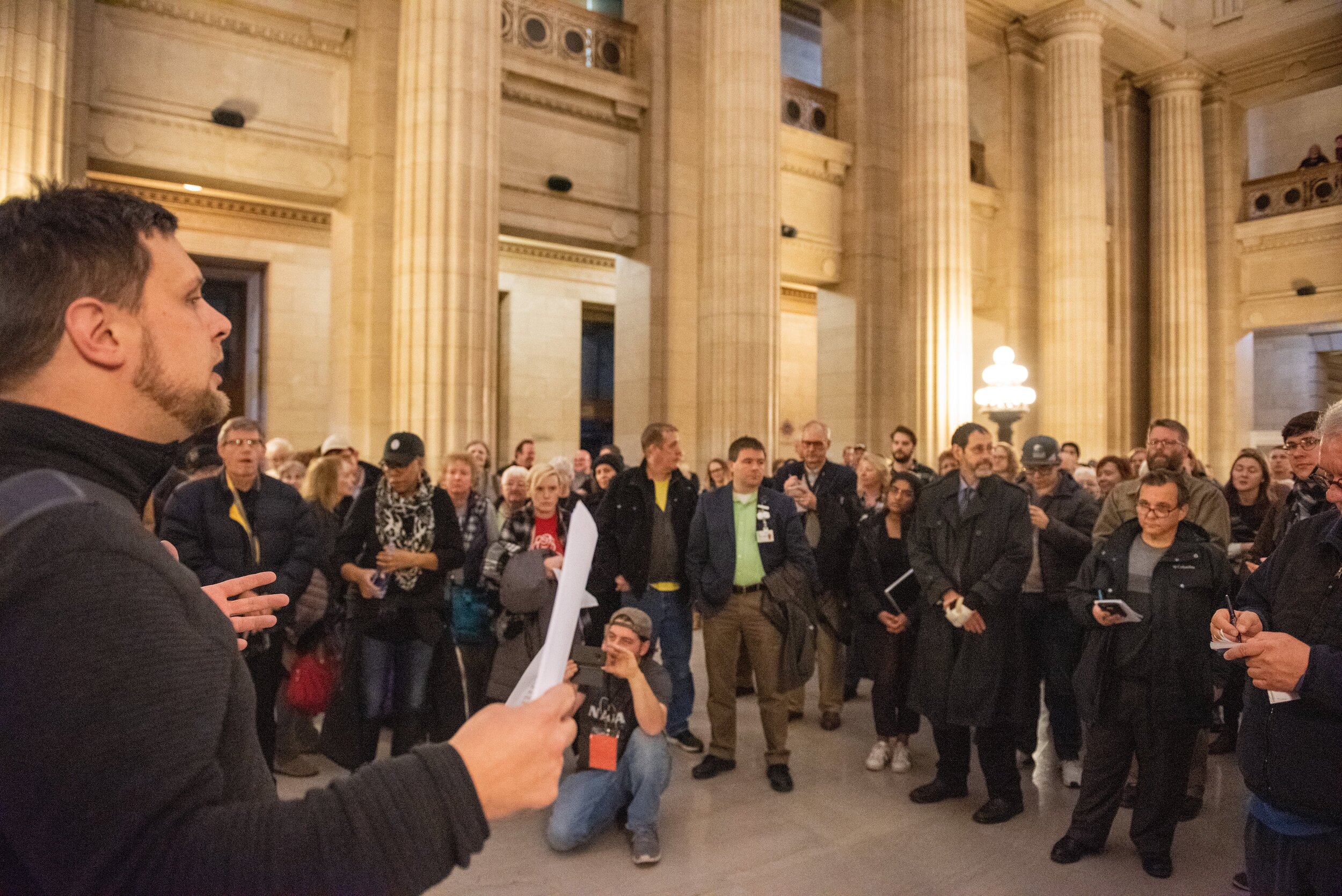Advocacy
We seek systemic change by leading service providers, government officials, and the Northeast Ohio community to address policies and conditions that cause homelessness while also changing their response to people experiencing a housing crisis.
Undoing Racism
According to the Cuyahoga County Office of Homeless Services, 75% of people using shelters in Cleveland are black, Indigenous, people of color (BIPOC), despite making up approximately half of the city’s population. Such disproportionate representation reveals the structural racism that is implicit in housing and homeless policy. NEOCH strives to create intentional spaces and accountability structures within our community’s homelessness system to eliminate systemic racism as a root cause of homelessness. This means recognizing that racism is embedded in the very fabric of this country and so our work must constantly acknowledge this fact, center the voices and wishes of those most impacted, and implore everyone to recognize their stake in undoing racism.
Housing Rights & Policy
Preventing homelessness begins with strengthening the rights of tenants, especially their right to access safe, affordable housing. We aim to increase stable housing rights for people at risk of homelessness while providing backbone support to create momentum for affordable housing policies that benefit low-income renters. To end homelessness, we need proactive and innovative approaches to housing rights & policy that take leadership from those directly impacted. Helping to pass “Pay to Stay” legislative protections for renters in Ohio has been an integral feature of NEOCH’s advocacy work in 2020 and 2021.
Civil & Human Rights
In committing to the values of radical inclusivity and affirming dignity, our vision necessitates protecting and expanding the civil rights of people experiencing homelessness. It is particularly important to combat the criminalization of homelessness, apparent most clearly in the selective enforcement of laws - such as loitering and other “quality of life” offenses. These laws criminalize the circumstances of poverty and fuel stereotyped fear about people living unhoused. Our advocacy work in this area also involves examining shelter conditions and policies, ensuring LGBTQ+ access to and affirmation in shelters, and addressing homelessness caused by the collateral consequences of past criminal convictions.




